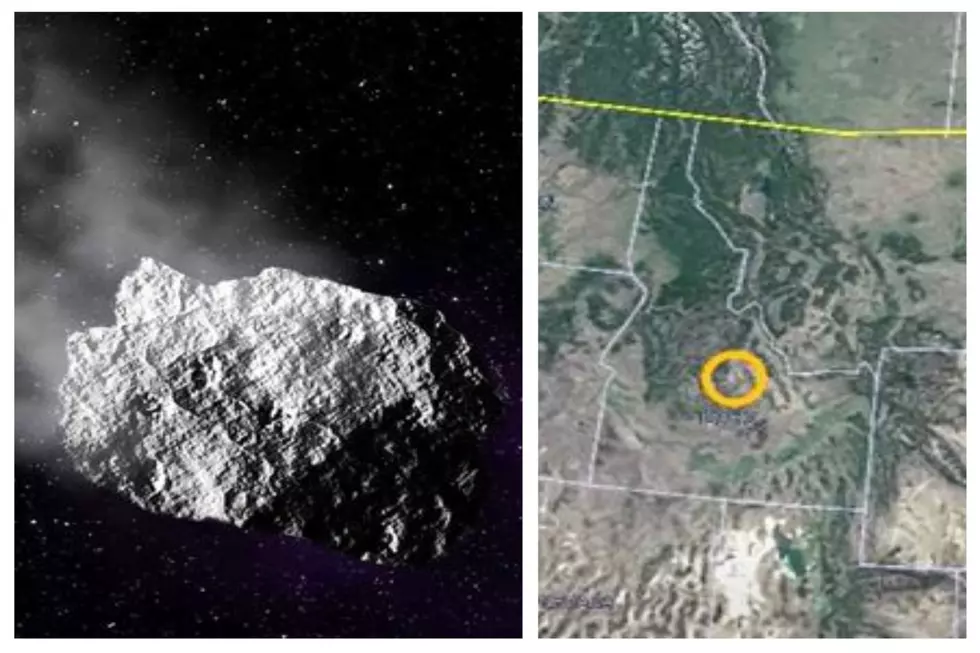
Idaho & Montana Share A 600 Million Yr Old Hidden Asteroid Crater
Millions of years before Idaho could be located by its current planetary coordinates, scientists hypothesize the landmass was part of a supercontinent located within the modern-day Antarctic Circle. Scientists also believe that one of the largest craters on Earth, which is located 180 miles northeast of Twin Falls, was caused by an asteroid that impacted sometime between the Proterozoic Era and the Ediacaran Period.
How many of you have ever heard of the Beaverhead impact site? The crater is one of the planet's largest, and takes up space in both Idaho and Montana, according to data at craterexplorer.ca. Thousands of acres of woodland now cover the impact zone.
More than 600 million years ago when modern-day Idaho was part of a landmass floating over 9,500 miles away in the Southern Hemisphere, it was impacted by an asteroid that damaged what is now southeastern Idaho and southwestern Montana.

The impact site cannot be seen with the naked eye if flying in an aircraft over the region, but is very much a part of the landscape. The Idaho counties of Clark and Fremont are thought to be found within the impact site, while the Montana counties of Beaverhead and Madison are also included, according to craterexplorer.ca.
Asteroids have impacted throughout North America over the centuries, but the Beaverhead impact site remains one of the planet's largest, and struck the Earth more than 500 million years before the one that is thought to have caused the extinction of dinosaurs.
Idaho Changes From Space
Weird Southern Idaho Sights From Space
Pictures Of Twin Falls As A Tiny Planet
More From 95.7 KEZJ









